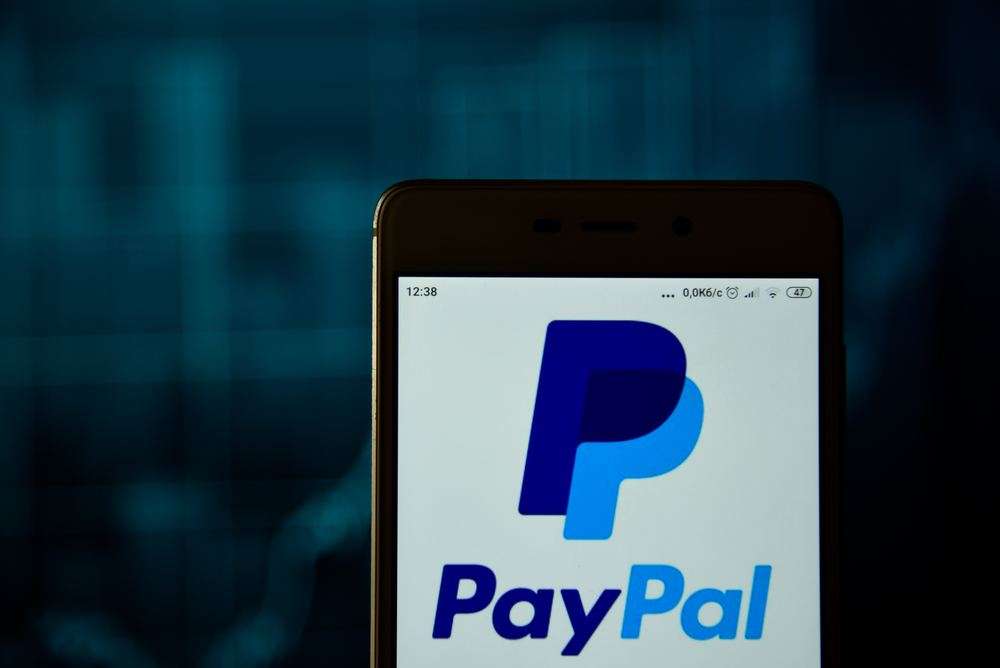What You Should Know about Tax Law Changes for Your PayPal Income
 Many business owners and self-employed individuals expressed concern when a new tax law came into effect at the start of 2022. This new law impacts the way income from PayPal, Venmo, Zelle, and other digital payment platforms is reported to the IRS. This has led to worries about nontaxable income being reported, and other issues that would impact your tax liability. Keep reading to learn what you need to know about these changes.
Many business owners and self-employed individuals expressed concern when a new tax law came into effect at the start of 2022. This new law impacts the way income from PayPal, Venmo, Zelle, and other digital payment platforms is reported to the IRS. This has led to worries about nontaxable income being reported, and other issues that would impact your tax liability. Keep reading to learn what you need to know about these changes.
Taxes on This Income Are Not Changing
First, we want to make it abundantly clear that nothing is actually changing in terms of how your digital payments are taxed. If you receive business payments or self-employed income through these platforms, that income has always been taxable income, and remains so. If you use these platforms to receive personal payments—like reimbursement when you pay for a friend’s lunch, or cash sent as a birthday gift from a family member—then those transactions remain nontaxable.
What Is Actually Changing?
So, if nothing is changing in how your digital payments are taxed, what’s all the fuss about? The new tax law impacts the reporting requirements for these platforms. In the past, PayPal and similar websites and apps only needed to report accounts with over $20,000 in transactions to the IRS. Now, that threshold has dropped to $600 of taxable income. Obviously, this is a big change, and it will mean a lot more accounts have their income reported to the IRS than in the past. But, as already stated, even if you were earning less than this in the past, that income was still taxable.
The only difference is that, if you were earning under $20,000 in digital payments, the sole responsibility for reporting that income fell to you. Now, if your income exceeds $600, the platform you use will send a 1099-K to you and the IRS.
Will Personal Payments Be Reported?
The biggest concern people have with this change is that nontaxable income on these platforms will end up being reported to the IRS. If you use PayPal or Venmo regularly for person-to-person transfers, it’s quite easy to exceed $600 in incoming transactions by the end of the year. This is especially true if you use the platform for regular transfers, like receiving your roommate’s half of the rent, for example.
The good news is, these errors likely won’t occur for most people. As PayPal states on their website, “PayPal monitors accounts to ensure that personal payments are not being used for sales of goods and services.” This is true of all digital payment platforms. These systems are designed to be able to differentiate between personal and business transactions, so if you use your account strictly for personal payments, it’s very unlikely that you’ll encounter any issues with these changes.
What If I Use My Account for Business and Personal Purposes?
The one instance in which this change may cause issues is for those individuals who use their digital payment accounts for both business and personal purposes. This can be surprisingly common among individuals with a “side hustle,” like selling art and custom prints online, teaching piano lessons, and other sources of supplementary income. If you have a source of supplementary income like this, and you use the same digital platform for receiving personal payments from friends and family, there is the potential for problems when your income is reported at the end of the year.
While these platforms are pretty good at differentiating business accounts from personal accounts, they’re going to be a lot less accurate at sifting through all of your transactions and determining which transactions are taxable and which are not. This may result in you having all your transactions (both taxable and nontaxable) reported to the IRS at the end of the year. If your own reported income is different from what these platforms sent to the IRS, you could have a big mess on your hands.
Create Separate Accounts for Business and Personal
With this change now in effect, we strongly recommend that any self-employed individuals or small-business owners create a separate account for receiving digital payments. Alternatively, you could elect to keep one of your payment platforms (e.g., PayPal) exclusively for business purposes, and only accept personal payments on other platforms (e.g., Zelle and Venmo). Even though you may have some mixed transactions already this year, you’ll be better off separating your business and personal transactions as soon as possible, rather than allowing them to continue to intermingle for the rest of the year.
If you’re worried about how this change will impact your tax return this year, contact us today to schedule an appointment with one of our experienced CPAs.